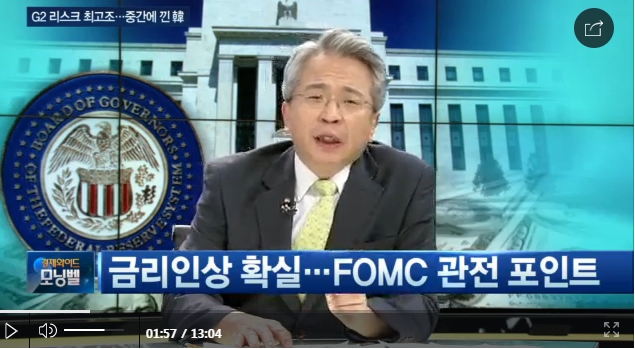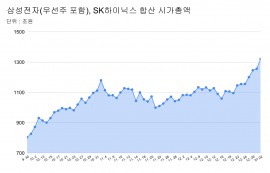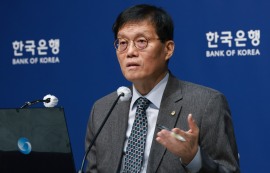![[김박사 진단] 금리인상 폭풍이 온다. 미국 연준 FOMC 금리동결로 한국은행의 고민의 골이 깊어질 것으로 보인다. 사진=글로벌이코노믹](https://nimage.g-enews.com/phpwas/restmb_allidxmake.php?idx=5&simg=20191212083403013184a01bf698f17519719666.jpg) 이미지 확대보기
이미지 확대보기경기부진으로 추가 금리인하를 준비해온 한국은행으로서는 고민이 깊어졌다. 우리나라 경기를 살리기위해서는 금리인하가 필요한 데 미국이 더이상 금리인하를 하지 않는 상태에서 우리만 금리인하를 할 경우 한국과 미국의 금리격차가 더 벌어져 외국인 자금이탈이라는 부작용이 생길 수 있기 때문이다.
미국에서는 금리인하 시대가 가고 이제 금리인상이 거론되고 있다. 미국이 금리를 인상하면 한국과 미국의 금리격차는 더 벌어질 수 있다.
제롬 파월 미국 연방준비제도 의장은 12일(한국시각) 기준금리 동결을 발표한 후 가진 기자회견에서 "현재의 상황에서는 금리 인상의 필요성이 그리 크지 않다"라고 밝혔다.
미국 연준이 금리정책을 펼 때 기준으로 삼는 지수는 PCE 물가지수이다. 이 PCE 물가지수가 2% 넘어가지 않도록 하겠다는 것이 연준의 기본정책이다 . 문제는 이 지수가 이미 2%선에 거의 육박했다는 사실이다. 금리인상이 그리 멀지 않았다는 이야기다.
이에 따라 미국 연준의 금리인상에 대비할 때다.
다음은 연준 기준금리 동결직후 제롬 파월 연준의장 기자회견 모두 발언 전문
December 11, 2019 Chair Powell’s Press Conference Transcript PRELIMINARY
December 11, 2019
CHAIR POWELL. Good afternoon everyone. To begin, I would like to say a few words
about Paul Volcker, who as you know passed away earlier this week. Paul Volcker served as
Federal Reserve Chair from 1979 to 1987. He accomplished many things during his long and
distinguished career at the Fed and elsewhere. Of course, he is best known for leading the fight
to tame the double-digit inflation that he inherited as Chair, thus laying the foundation for the
prosperity and price stability we enjoy today. But what is perhaps most admirable about him—
more than his many accomplishments—was his character. He believed that there is no higher
calling than public service, and he dedicated the lion’s share of his life to it. With courage,
integrity, and tenacity, he always pursued the policies that he believed would ultimately benefit
all Americans. My colleagues and I continue to draw inspiration from his example.
Turning to today’s meeting, my colleagues and I decided to leave our policy rate
unchanged, after lowering it a total of 3/4 of a percentage point at the previous three meetings.
As always, we base our decisions on judgment of how best to achieve the goals Congress has
given us—maximum employment and price stability. Our economic outlook remains a favorable
one despite global developments and ongoing risks. With our decisions through the course of the
past year, we believe that monetary policy is well positioned to serve the American people by
supporting continued economic growth, a strong job market, and inflation near our symmetric
2 percent goal.
The economic expansion is in its 11th year, the longest on record. Household spending
has been strong—supported by a healthy job market, rising incomes, and solid consumer
confidence. In contrast, business investment and exports remain weak, and manufacturing
output has declined over the past year. As has been the case for some time, sluggish growth
December 11, 2019 Chair Powell’s Press Conference Transcript PRELIMINARY
Page 2 of 4
abroad and trade developments have been weighing on those sectors. Even so, the overall
economy has been growing moderately. And with a strong household sector and supportive
monetary and financial conditions, we expect moderate growth to continue. As seen from
FOMC participants’ most recent projections, the median expectation for real GDP growth slows
slightly over the next few years but remains near 2 percent.
The unemployment rate has been near half-century lows for well more than a year, and
the pace of job gains remains solid. Participation in the labor force by people in their prime
working years, ages 25 through 54, has been increasing. And wages have been rising,
particularly for lower-paying jobs. People who live and work in low- and middle-income
communities tell us that many who have struggled to find work are now finding new
opportunities. Employment gains have been broad-based across all racial and ethnic groups and
all levels of education. These developments underscore for us the importance of sustaining the
expansion so that the strong job market reaches more of those left behind. We expect the job
market to remain strong. The median of participants’ projections for the unemployment rate
remains below 4 percent over the next several years.
Inflation continues to run below our symmetric 2 percent objective. Over the 12 months
through October, total PCE inflation was 1.3 percent and core inflation, which excludes volatile
food and energy prices and is a better indicator of future inflation, was 1.6 percent. While low
and stable inflation is certainly a good thing, inflation that runs persistently below our objective
can lead to an unhealthy dynamic in which longer-term inflation expectations drift down, pulling
actual inflation even lower. In turn, interest rates would be lower as well and closer to their
effective lower bound. As a result, the scope for interest rate reductions to support the economy
in a future downturn would be diminished, resulting in worse economic outcomes for American
December 11, 2019 Chair Powell’s Press Conference Transcript PRELIMINARY
Page 3 of 4
families and businesses. Against the backdrop of a strong economy and supportive monetary
policy, we expect inflation will rise to 2 percent. The median of participants’ projections rises to
1.9 percent next year and 2 percent in 2021. We are strongly committed to achieving our
symmetric 2 percent inflation goal.
Over the course of the past year, our views about the path of interest rates that would best
achieve our employment and inflation objectives changed significantly, as the economy faced
some important challenges from weaker global growth and trade developments. As the year
progressed, we adjusted the stance of monetary policy to cushion the economy from these
developments and to provide some insurance against the associated risks. In addition, inflation
pressures were unexpectedly muted, strengthening the case for a more supportive stance of
policy. Rather than modestly increasing the target rate for the federal funds rate this year as
seemed appropriate a year ago, we reduced it by 3/4 percentage point. This shift has helped
support the economy and has kept the outlook on track. The medians of participants’ projections
for economic growth, the unemployment rate, and inflation are little changed from a year ago,
aside from a lower inflation projection for 2019. Of course, that is the function of monetary
policy—to adjust interest rates to promote employment and price stability in response to forces
acting on the economy.
We believe that the current stance of monetary policy will support sustained growth, a
strong labor market, and inflation near our symmetric 2 percent objective. As long as incoming
information about the economy remains broadly consistent with this outlook, the current stance
of monetary policy likely will remain appropriate. Looking ahead, we will be monitoring the
effects of our recent policy actions, along with other information bearing on the outlook, as we
assess the appropriate path of the target range for the federal funds rate. Of course, if
December 11, 2019 Chair Powell’s Press Conference Transcript PRELIMINARY
Page 4 of 4
developments emerge that cause a material reassessment of our outlook, we would respond
accordingly. Policy is not on a preset course.
Finally, I wanted to note that we have been purchasing Treasury bills and conducting
repurchase operations consistent with the plan we announced in December. These technical
operations are aimed at maintaining an ample level of reserves and addressing money market
pressures that could adversely affect the implementation of monetary policy. Our operations
have gone well so far; pressures in money markets over recent weeks have been subdued. To
address possible pressures in money markets over the year-end, we have been conducting term
repo operations spanning year-end. We stand ready to adjust the details of our operations as
appropriate to keep the federal funds rate in the target range.
Thank you, and I will be happy to take your questions.
김대호 글로벌이코노믹 연구소장 tiger8280@g-enews.com










































